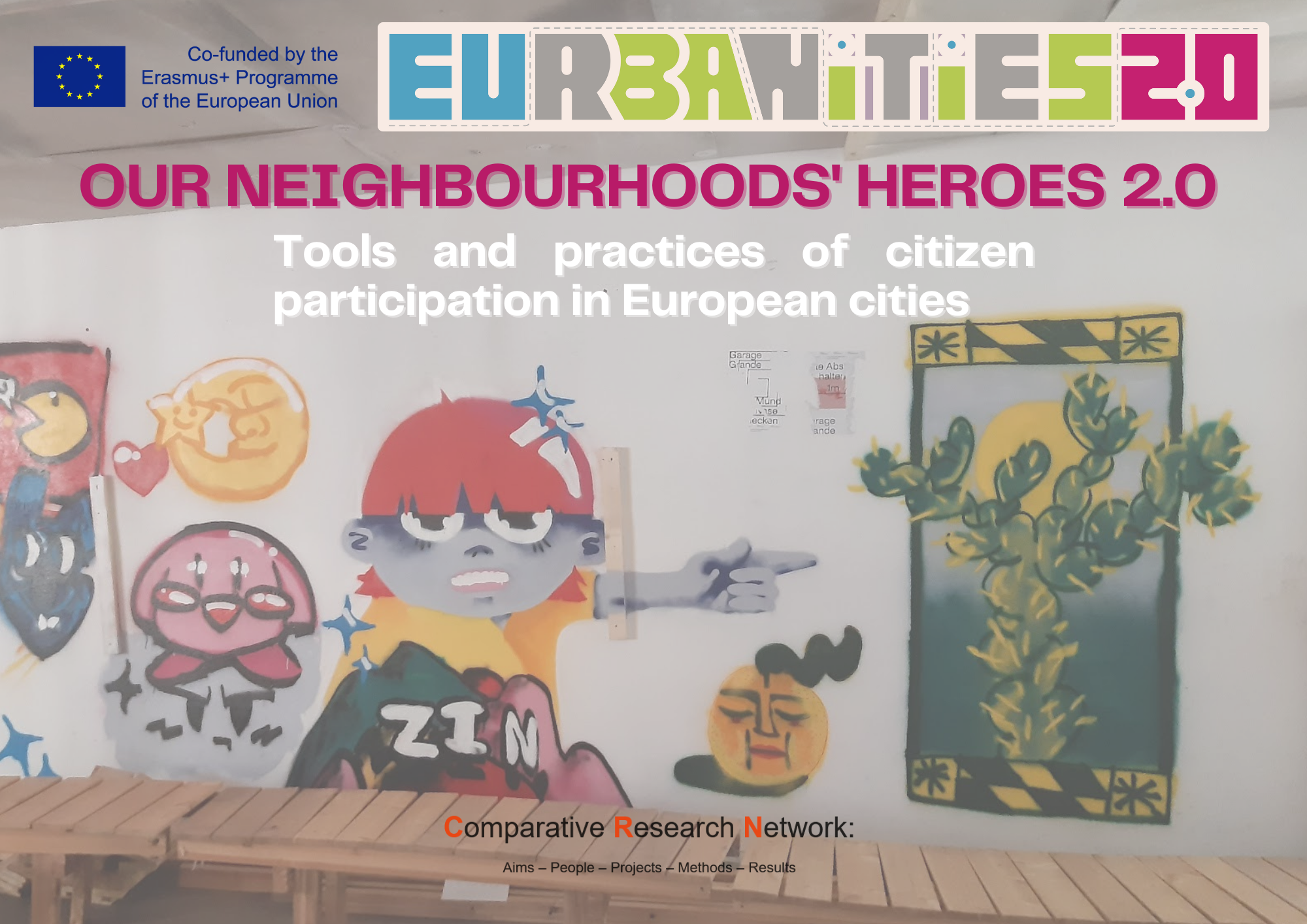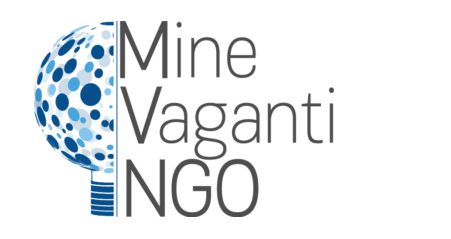Eurbanities 2.0 aims at empowering citizens for being actively engaged in the development of equitable and sustainable European urban neighborhoods. We intend to transfer them knowledge on the tools and methods of citizen participation in urban planning and neighborhood development through the creation of a game based learning tool. Eurbanities 2.0 will rely on the most recent approach of urban participation considering citizens as the co-creators of their neighborhoods.
The main target groups of the project are:
1. Experienced trainers and educators in non formal adult education, working with disadvantaged citizens and learners;
2. Citizens living in disadvantaged neighborhoods or in marginal situation;
3. Activists and facilitators supporting people on the local level
The project will play an indirect effect on students, school kids in the frame of formal curriculum, and representatives of local authorities and stakeholders launching participatory processes. Eurbanities 2.0 is the direct follow-up of the recently finished Eurbanities project. The consortium is thus based on an existing and experienced partnership, completed with 3 new members. The 7 partners represent the main expertise needed on gaming, citizen participation and teaching.
The main results of the project will be:
1-The creation of a complex pedagogical method and toolkit empowering citizens for actively participating in urban planning and acting as co-creators of their neighborhoods. The toolkit will contain:
a) a handbook on Smart Practices with a theoretical introduction of the context, 10 smart practices on participatory planning and co-creation of neighborhoods, and a summary on the tools and methods of smart participatory planning;
b) the Eurbanities 2.0 online game and
c) the Eurbanities 2.0 curriculum embedding the game.
2- A strong and sustainable community of organizations committed to use and improve the method also after the project cycle.
3- The enlargement of the already existing Eurbanities platform.
4- A list of Policy Recommendations
5- A Project Sustainability Plan including and Action Plan for the long term use of the method.
The project implementation will be based on the critical design thinking method, an approach aiming
at the critical and unbiased analysis of a given situation following the stages of design: observation/interaction, empathy, problem formulation, solution deduction, testing, alteration, and reiteration.
The main activities of the project will be organized into work packages and will cut the project into
different phases, as follows:
1-Good practice analysis and a first part of the needs assessment will take place in the first year of
the project, leading to the identification of the main tools, methods and scenarios of participatory
planning;
2-The co-design of the main objectives, messages and elements of the game and the curriculum in
the frame of a First Co-design Training Lab and Game Hackathon;
3-Production of the first prototypes of the game and the curriculum;
4-Testing of the two prototypes and co-creation of improvements in the frame of two Co-design
Training Labs;
5-Creation of the final versions of the game and the curriculum embedding the game;
6-Presentation of the project’s main outputs and testing of the game at 5 local multiplier events.
The activities will be centered around 8 transnational meetings including the kick-off and a Final
meeting and three transnational Co-design Training Labs destined to learning and co-creation
activities.
The project management will be implemented by the Lead Partner CRN, in close interaction with the entire partnership: each partner will be assigned to the co-coordination of specific work packages according to their completencies. The overall decisions and conflict management will be realised by
the project Steering Committee with the contribution of the Board of External Experts. Project dissemination will be a global task of all partners, to be managed in the frame of a distinct work package.
Eurbanities 2.0 method is foreseen to be used and improved far beyond the project cycle, based on the Project Sustainability Plan. Merged with the results of the first Eurbanities project, the overall Eurbanities learning method will cover the entire cycle of citizen participation in urban processes from
the acknowledgement of the challenges, through community building, till participatory planning and
engagement of the citizens as co-creators of their neighborhood.













